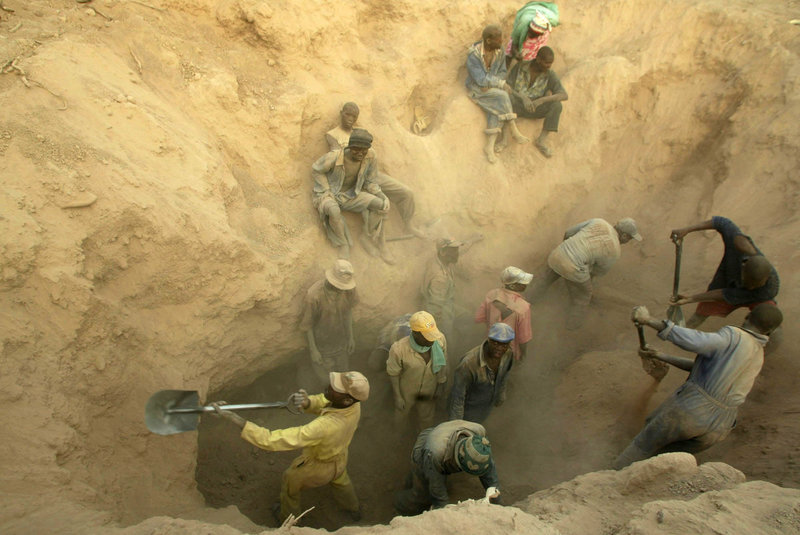JOHANNESBURG – Zimbabwe auctioned 900,000 carats of rough gems Wednesday from a diamond field where human rights groups say soldiers killed 200 people, raped women and enslaved children.
It was the first public sale of diamonds from the notorious Marange field in eastern Zimbabwe since international regulators imposed a ban in November under rules designed to screen out conflict gems.
The sale happened to coincide with the “blood diamonds” phase of the war crimes trial of Charles Taylor, the former Liberian president. Taylor’s case and the Zimbabwe sale are unrelated, but both point to the successes and difficulties facing the campaign to regulate the trade in diamonds that has helped finance wars in Liberia, Sierra Leone, Angola, Congo and now Ivory Coast.
The auction in Harare, the capital of Zimbabwe, went ahead after the gems were certified as ‘conflict-free’ by Abbey Chikane, a monitor for the Kimberley Process, which oversees trade in the diamonds. Chikane had established that soldiers were gone from two fenced-off commercial mines producing the diamonds, and that the mines were operating according to “minimum international standards.”
In the rest of the field, where Zimbabwe’s military still holds sway and abuses reportedly continue, a ban on diamonds remains in place. But there is no guarantee its product won’t infiltrate into the legitimately mined stones.
The arrangement so angered American gem trader Martin Rapaport that in February he quit as president of the World Diamond Council. “The tragedy of Zimbabwe is that the Kimberley Process has started legitimizing, legalizing, kosherizing blood diamonds,” he said in a telephone interview from Israel as the auction got under way.
He said it made Kimberley participants “liars who are telling the world that these diamonds are legitimate.”
The Kimberley Process was set up in 2002. Its members are 75 diamond-producing and diamond-trading countries, along with industry agencies and civic and human rights bodies such as London-based Global Witness.
Stephane Chardon, chairman of the Kimberley monitoring group, said it deserved credit for the original ban on Marange diamonds and for ensuring that the two fenced-off mines were being properly run. He noted that the Kimberley sanctions apply only to blood diamonds mined and sold by rebel movements or their allies to finance armed conflicts aimed at toppling legitimate governments. It has no provision for punishing governments. Chardon said the system has helped.
The Marange field was discovered in 2006 and is believed to be the largets found since the 19th century. It triggered a chaotic diamond rush until police and then the army moved in. Buyers from Belgium, Russia, India, Israel, Lebanon and the United Arab Emirates flew into Harare to inspect the stones and present bids in sealed envelopes.
Copy the Story Link
Send questions/comments to the editors.



Success. Please wait for the page to reload. If the page does not reload within 5 seconds, please refresh the page.
Enter your email and password to access comments.
Hi, to comment on stories you must . This profile is in addition to your subscription and website login.
Already have a commenting profile? .
Invalid username/password.
Please check your email to confirm and complete your registration.
Only subscribers are eligible to post comments. Please subscribe or login first for digital access. Here’s why.
Use the form below to reset your password. When you've submitted your account email, we will send an email with a reset code.